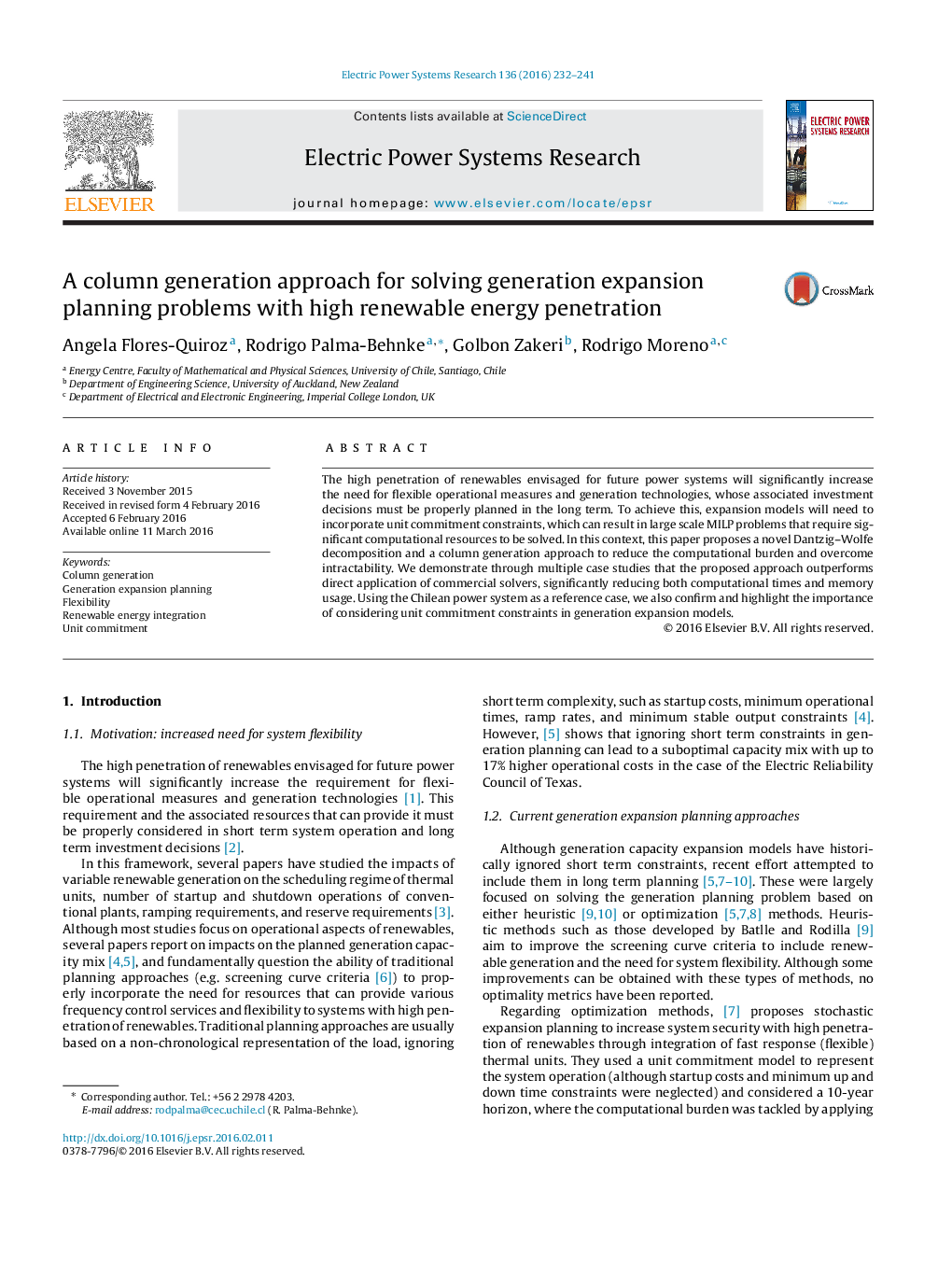| کد مقاله | کد نشریه | سال انتشار | مقاله انگلیسی | نسخه تمام متن |
|---|---|---|---|---|
| 703087 | 1460877 | 2016 | 10 صفحه PDF | دانلود رایگان |
• A multi-stage generation expansion planning model which incorporates unit commitment constraints is proposed.
• A Dantzig–Wolfe decomposition together with a column generation approach is developed to overcome intractability.
• Computational results for small and large size cases confirm the benefits of the method.
• An optimal expansion of the generation mix of a realistic power system in Chile for 2012–2030 is determined.
• The importance of considering short term constraints in long term generation planning is highlighted.
The high penetration of renewables envisaged for future power systems will significantly increase the need for flexible operational measures and generation technologies, whose associated investment decisions must be properly planned in the long term. To achieve this, expansion models will need to incorporate unit commitment constraints, which can result in large scale MILP problems that require significant computational resources to be solved. In this context, this paper proposes a novel Dantzig–Wolfe decomposition and a column generation approach to reduce the computational burden and overcome intractability. We demonstrate through multiple case studies that the proposed approach outperforms direct application of commercial solvers, significantly reducing both computational times and memory usage. Using the Chilean power system as a reference case, we also confirm and highlight the importance of considering unit commitment constraints in generation expansion models.
Journal: Electric Power Systems Research - Volume 136, July 2016, Pages 232–241
